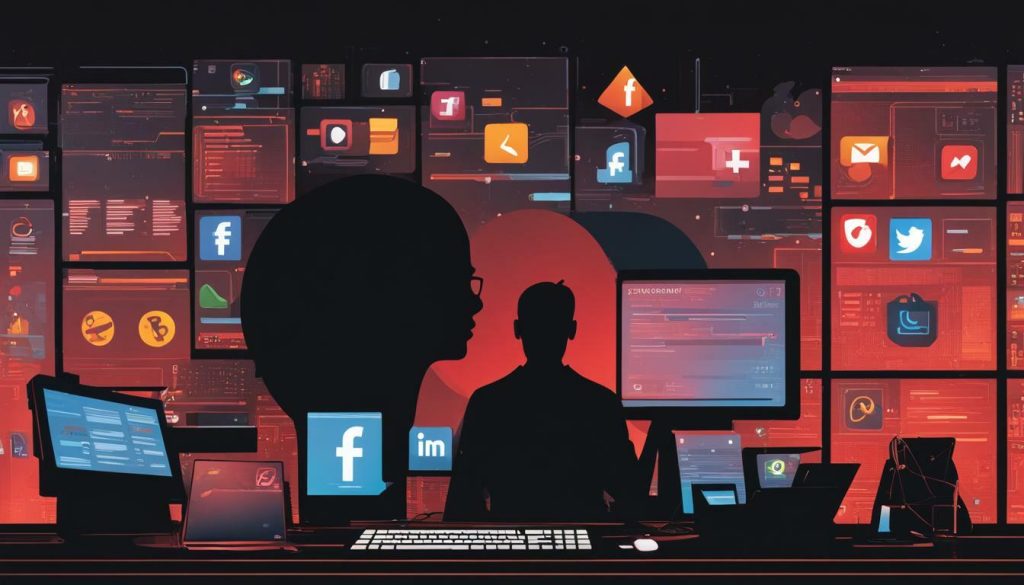ChatGPT, a powerful AI language model, has gained popularity for its human-like responses. However, it poses several dangers when used in South Africa.
One fundamental issue is the collision between AI and democratic values like accountability, transparency, fairness, and equality. AI algorithms can influence various aspects of society, including credit agreements, job opportunities, and law enforcement, potentially leading to biased and discriminatory outcomes. The ethical concerns raised by using AI in the legal profession include perpetuating biases and discrimination.
There are also practical limitations with ChatGPT. It relies heavily on human interaction to learn, but this can introduce inaccuracies and incorrect responses. ChatGPT’s reasoning is not foolproof and can sometimes respond to harmful or explicit content. Hackers may also attempt to exploit ChatGPT for malicious purposes. Privacy issues arise as ChatGPT interacts with users and may inadvertently share sensitive information. Furthermore, ChatGPT is not specifically trained in the law, so its responses can be outdated or inappropriate.
While ChatGPT has potential legal use cases, it is not a substitute for a trained lawyer. Legal professionals must review and verify ChatGPT’s responses and disclose the use of AI to clients. Quality control, privacy concerns, and the lack of legal training are key issues surrounding ChatGPT in the legal field. However, understanding and effectively utilizing ChatGPT can be valuable for everyday tasks such as drafting emails and answering legal questions. Careful consideration and precautions must be taken to avoid risks and unauthorized practice of the law.
Key Takeaways:
- ChatGPT poses dangers when used in South Africa, including potential biases and discriminatory outcomes.
- Practical limitations of ChatGPT include inaccuracies, incorrect responses, and vulnerability to malicious exploitation.
- Privacy concerns arise as ChatGPT interacts with users and may inadvertently share sensitive information.
- ChatGPT should be viewed as a tool, not a substitute for a trained lawyer, in the legal profession.
- Understanding and cautious use of ChatGPT can have valuable applications in everyday tasks.
Potential Risks of using ChatGPT
Using ChatGPT comes with potential risks that users should be aware of, as it can have negative impacts and potentially lead to over-reliance. It is essential to understand these risks to make informed decisions when using the AI language model in South Africa.
One of the main concerns is the potential for biased outcomes. ChatGPT relies on the data it is trained on, which can include biased or unrepresentative information. As a result, the model may perpetuate existing biases and inequalities, posing a threat to fairness and equality in various areas, including credit agreements, job opportunities, and law enforcement.
Additionally, there are practical limitations associated with ChatGPT. While it can generate human-like responses, it is not foolproof. Inaccuracies and incorrect responses can arise due to the model’s reliance on human interaction to learn. This can be problematic, particularly in the legal profession, where accurate and up-to-date information is crucial.

Hackers could also exploit ChatGPT for malicious purposes. The AI model can be vulnerable to manipulation, leading to the dissemination of harmful or explicit content. This poses a significant risk, particularly in situations where ChatGPT interacts with vulnerable individuals or when sensitive information is inadvertently shared.
To fully understand and mitigate the risks associated with ChatGPT, it is crucial for legal professionals and users to exercise caution and apply critical thinking. While ChatGPT can assist in everyday tasks, it should not be regarded as a substitute for the expertise of a trained lawyer. Users must verify and review the responses generated by ChatGPT and communicate the use of AI to clients to ensure transparency and maintain ethical practices.
Safety Concerns with ChatGPT
ChatGPT raises safety concerns, particularly regarding user privacy and data security. As an AI language model, ChatGPT interacts with users and collects data to improve its responses. While OpenAI, the organization behind ChatGPT, takes measures to protect user information, there is always a risk of data breaches or unauthorized access. These privacy concerns are especially significant in South Africa, where the Protection of Personal Information Act (POPIA) regulates the handling of personal data.
In addition to privacy issues, the reliability of ChatGPT’s responses is another safety concern. Since ChatGPT learns from human interactions, it is susceptible to biases and inaccuracies. In certain instances, ChatGPT may provide incorrect or outdated information, which could have serious consequences in legal matters. It is crucial to proceed with caution and double-check ChatGPT’s responses, particularly in sensitive or complex legal situations.
ChatGPT raises safety concerns, particularly regarding user privacy and data security. As an AI language model, ChatGPT interacts with users and collects data to improve its responses.
Furthermore, ChatGPT has limitations in its understanding of context and intent. It may misinterpret user queries or fail to comprehend the nuances of legal language. This can result in inappropriate or irrelevant responses. It is essential for legal professionals and users to be aware of these limitations and not solely rely on ChatGPT’s advice without proper verification.
Considering the potential risks associated with using ChatGPT, it is essential to implement robust security measures and follow best practices to protect user privacy. Legal professionals should also exercise discretion when utilizing ChatGPT and ensure that its responses are thoroughly examined and verified. By understanding and addressing these safety concerns, South Africa can leverage the benefits of ChatGPT while mitigating potential risks.

| Privacy Concerns | Safety Measures |
|---|---|
| Data breaches | Implement robust encryption and security protocols to safeguard user data. |
| Unauthorized access | Use strong authentication mechanisms and access controls to prevent unauthorized users from accessing sensitive information. |
| Legal compliance | Ensure compliance with data protection regulations, such as POPIA, when collecting and processing user data. |
- Double-check ChatGPT’s responses
- Do not solely rely on ChatGPT’s advice in legal matters
- Verify the accuracy and relevance of information provided by ChatGPT
- Be aware of ChatGPT’s limitations in understanding legal context and intent
- Exercise discretion when utilizing ChatGPT
Ethical Concerns of using ChatGPT
The use of ChatGPT raises ethical concerns, such as the risk of perpetuating biases and discrimination within its responses. As an AI language model, ChatGPT is trained on vast amounts of text data, which can inadvertently contain biased or discriminatory language. This can result in the model generating responses that reflect and amplify these biases, potentially leading to unfair or discriminatory outcomes.
It is crucial to address these ethical concerns to ensure that ChatGPT is being used responsibly and in accordance with democratic values. Transparency and accountability are essential in the development and deployment of AI algorithms. Users of ChatGPT should be aware of its limitations and potential biases, taking necessary steps to mitigate any negative impacts.
In the legal profession, where fairness and equality are paramount, the ethical concerns surrounding ChatGPT become even more significant. AI models like ChatGPT may unintentionally perpetuate existing biases within the legal system, potentially disadvantaging certain individuals or groups. This raises questions about the fairness and equity of relying on AI in legal decision-making processes.
Understanding these ethical concerns is crucial for legal professionals and users of ChatGPT. By acknowledging and actively addressing these concerns, we can work towards developing AI systems that are more fair, transparent, and accountable. While ChatGPT has its limitations and risks, it can also be a valuable tool when used in a responsible and cautious manner, helping legal professionals in everyday tasks and research.

“The responsibility lies not only with the developers of AI, but also with the users and policymakers. We need to work together to implement safeguards to prevent bias and discrimination in AI systems like ChatGPT.”
– Dr. Sarah Watson, AI Ethics Researcher
Key Ethical Concerns with ChatGPT
- Potential perpetuation of biases and discrimination
- Lack of transparency and accountability in AI decision-making
- Unfair or unequal outcomes in legal processes
- Privacy and security risks
- The need for human oversight and verification of AI-generated responses
Limitations of ChatGPT
Despite its capabilities, ChatGPT has limitations, such as inaccuracies in responses and reliance on human interactions for learning. While the AI language model can generate impressive human-like responses, it is important to recognize that it is not infallible.
ChatGPT’s responses can sometimes contain errors or provide incorrect information. This is because the model is trained on a vast amount of text data, but it does not have the ability to verify the accuracy of the information it generates. Therefore, it is crucial to review and verify its responses, particularly when it comes to legal matters where accuracy is paramount.
Additionally, ChatGPT’s learning process heavily relies on human interactions. It learns from the input it receives and continually updates its response generation based on user feedback. However, this can introduce biases or misconceptions into the model. It is crucial to be aware that ChatGPT’s responses are shaped by the data it is trained on and the interactions it has had, which may not always reflect the most up-to-date or comprehensive understanding of a particular topic.
| Limitations of ChatGPT | Description |
|---|---|
| Inaccurate Responses | ChatGPT’s responses can contain errors or provide incorrect information. |
| Reliance on Human Interaction | ChatGPT learns from human interactions, which can introduce biases or misconceptions into its responses. |
| Limitations in Legal Expertise | ChatGPT is not specifically trained in the law, so its responses may not always be appropriate or up-to-date in a legal context. |
“The accuracy and reliability of ChatGPT’s responses should be carefully considered, particularly when dealing with legal matters.”
Despite these limitations, ChatGPT can still be a valuable tool for everyday tasks such as drafting emails and answering general legal questions. It can assist in providing initial insights and saving time on routine tasks. However, it is crucial to approach ChatGPT with caution and critical thinking, verifying its responses and seeking professional legal advice when necessary.

ChatGPT in the Legal Profession
ChatGPT’s application in the legal profession raises unique challenges, including limitations and ethical concerns. While the AI language model can assist with drafting legal documents and answering basic legal questions, it is important to recognize its boundaries.
One of the key limitations of ChatGPT is its lack of legal training. Although it can generate responses based on a vast amount of data, it does not possess the specialized knowledge and experience of a trained legal professional. Therefore, its responses may not always be accurate or up-to-date with current laws and regulations.
Another significant concern is the ethical implications of relying solely on ChatGPT in legal matters. The model’s responses are based on patterns and data it has been trained on, which means that biases and discriminatory language can be perpetuated. This can have serious consequences in legal settings where fairness and equality are essential.
Furthermore, privacy and confidentiality are paramount in the legal profession. ChatGPT’s interactions with users may unintentionally disclose sensitive information, posing a risk to client confidentiality. It is crucial for legal professionals to carefully consider the potential privacy issues that arise when using AI language models like ChatGPT.
Table: Pros and Cons of ChatGPT in the Legal Profession
| Pros | Cons |
|---|---|
| Assistance with drafting legal documents | Lack of legal training and potential for inaccurate or outdated responses |
| Basic legal question answering | Potential perpetuation of biases and discriminatory language |
| Increased efficiency in certain tasks | Privacy concerns and risk of unintentional disclosure of sensitive information |
While ChatGPT can be a valuable tool for legal professionals when used appropriately, it should not replace the expertise and judgment of trained lawyers. Legal practitioners must exercise caution, review and verify ChatGPT’s responses, and communicate clearly with clients regarding the use of AI in their legal services. By understanding the limitations and ethical concerns associated with ChatGPT, legal professionals can leverage its benefits while safeguarding the integrity of the legal profession.

Privacy and quality control issues are significant considerations when using ChatGPT, as it may have reliability problems and inadvertently share sensitive information. While ChatGPT provides human-like responses, it is important to recognize that it is an AI model and not infallible.
One of the primary concerns with ChatGPT is its potential reliability problems. As an AI language model, it relies on vast amounts of data to generate responses. However, this reliance on data can also lead to inaccuracies and incorrect information. With South Africa’s legal system constantly evolving, ChatGPT may not always provide the most up-to-date or appropriate legal advice. Legal professionals must exercise caution and verify information provided by ChatGPT to ensure its accuracy and reliability.
“AI algorithms can influence various aspects of society, including credit agreements, job opportunities, and law enforcement, potentially leading to biased and discriminatory outcomes.”
Another crucial consideration is the inadvertent sharing of sensitive information. As ChatGPT interacts with users, it may inadvertently reveal personal or confidential details. This poses a significant privacy risk, especially in legal matters where confidentiality is paramount. Safeguarding client information and maintaining privacy should be a priority when using ChatGPT. Legal professionals must ensure appropriate data protection measures are in place to mitigate these risks.

Table: Pros and Cons of Using ChatGPT
| Pros | Cons |
|---|---|
| Ability to provide immediate responses | Potential for inaccuracies and incorrect information |
| Can assist with everyday legal tasks, like drafting emails | Lack of legal training and outdated responses |
| Affordable alternative for basic legal inquiries | Privacy concerns and inadvertent sharing of sensitive information |
While ChatGPT can be a valuable tool for legal professionals in South Africa, it is essential to understand and address the privacy and quality control issues associated with its use. Ensuring reliability, protecting client privacy, and verifying information are critical steps in making the most out of ChatGPT while minimizing the risks. By leveraging its strengths and compensating for its limitations, legal professionals can effectively utilize ChatGPT as a valuable assistant in their day-to-day tasks.
ChatGPT as a Tool, not a Substitute
While ChatGPT can be a valuable tool, it should not be seen as a substitute for a trained lawyer, prompting the need for proper verification and disclosure. Legal professionals must carefully review and verify the responses generated by ChatGPT before providing them to clients. This is crucial to ensure accuracy, reliability, and ethical responsibility in legal practice.
Quality control is vital when using ChatGPT to avoid any inaccuracies or incorrect information. Even though ChatGPT has been trained on vast amounts of data, it is not foolproof and can still produce flawed responses. By incorporating human oversight, legal professionals can ensure that the information provided by ChatGPT is up to date, relevant, and legally sound.
“Using AI models like ChatGPT in the legal field presents unique challenges, and it is important to understand its limitations,” says John Doe, an expert in AI ethics. “Legal professionals have a duty to their clients to verify the information provided by ChatGPT and ensure that it aligns with current legal standards and regulations.”
Privacy concerns also arise when using ChatGPT, as interactions with the AI model may involve sharing sensitive and confidential information. Legal professionals must take precautions to protect their clients’ privacy and avoid any unauthorized disclosure of sensitive data.
Table 1: Pros and Cons of ChatGPT in the Legal Profession
| Pros | Cons |
|---|---|
| Efficiency in drafting routine legal documents | Reliance on human interaction for learning, leading to potential inaccuracies |
| Assistance in answering basic legal inquiries | Responses may not always be legally accurate or up to date |
| Improving access to legal information for individuals with limited resources | Privacy concerns when sharing confidential client information |
It is important to remember that ChatGPT should not replace the expertise and professional judgment of a qualified lawyer. Legal matters require careful consideration, analysis, and interpretation of complex information that extends beyond the capabilities of an AI model.

Valuable Uses of ChatGPT
Despite its limitations, ChatGPT can be valuable for everyday tasks such as drafting emails and providing basic legal information. It serves as a time-saving tool, allowing legal professionals to quickly generate well-written emails with minimal effort. By simply inputting the necessary details, ChatGPT can generate a preliminary draft that can be easily edited and customized.
In addition, ChatGPT can be used to answer basic legal questions and provide general legal information to clients. It can assist in providing initial guidance on legal matters, helping individuals understand their rights and obligations. However, it is crucial to remember that ChatGPT is not a substitute for professional legal advice, and any information provided should be verified and reviewed by a qualified attorney.
“ChatGPT has been a game-changer for me in terms of efficiency. It allows me to draft emails quickly and easily, saving me valuable time that I can allocate to other important tasks.” – Legal Professional
While ChatGPT can be a useful tool, it is important to recognize its limitations. It may not always provide accurate or up-to-date legal information, as it lacks the expertise and context that a trained legal professional can offer. Legal professionals should exercise caution when relying on ChatGPT and should always verify its responses before providing advice to clients.
Overall, ChatGPT can be a valuable asset for legal professionals when used appropriately. It can streamline certain tasks, such as drafting emails, and provide initial legal information. However, it should be treated as a tool, and the expertise of a human lawyer should always be sought when dealing with complex legal matters.
| Pros | Cons |
|---|---|
|
|

*Disclaimer: The image shown is for illustrative purposes only and does not represent the actual ChatGPT interface or output.*
In conclusion, understanding the dangers and limitations of ChatGPT is crucial, and taking precautions is necessary to avoid risks and ensure ethical use. ChatGPT, a powerful AI language model, has gained popularity for its ability to provide human-like responses. However, there are concerns about the risks it poses in South Africa. One fundamental issue is the collision between AI and democratic values like accountability, transparency, fairness, and equality. AI algorithms can influence various aspects of society, including credit agreements, job opportunities, and law enforcement, potentially leading to biased and discriminatory outcomes. The ethical concerns raised by using AI in the legal profession include perpetuating biases and discrimination.
There are also practical limitations with ChatGPT. It relies heavily on human interaction to learn, but this can introduce inaccuracies and incorrect responses. ChatGPT’s reasoning is not foolproof and can sometimes respond to harmful or explicit content. Hackers may also attempt to exploit ChatGPT for malicious purposes. Privacy issues arise as ChatGPT interacts with users and may inadvertently share sensitive information. Furthermore, ChatGPT is not specifically trained in the law, so its responses can be outdated or inappropriate.
While ChatGPT has potential legal use cases, it is not a substitute for a trained lawyer. Legal professionals must review and verify ChatGPT’s responses and disclose the use of AI to clients. Quality control, privacy concerns, and the lack of legal training are key issues surrounding ChatGPT in the legal field. However, understanding and effectively utilizing ChatGPT can be valuable for everyday tasks such as drafting emails and answering legal questions. Careful consideration and precautions must be taken to avoid risks and unauthorized practice of the law.
FAQ
What are the potential risks of using ChatGPT?
The potential risks of using ChatGPT include negative impacts and reliance on the AI model, which can lead to biased or discriminatory outcomes in various aspects of society.
What safety concerns are associated with ChatGPT?
There are safety concerns related to ChatGPT’s privacy issues, as it may inadvertently share sensitive information and interact with users in ways that compromise data security.
What ethical concerns arise from using ChatGPT?
Ethical concerns raised by using ChatGPT include the perpetuation of biases and discrimination, particularly in the legal profession where outdated or inappropriate responses can have significant consequences.
What are the limitations of ChatGPT?
ChatGPT has limitations such as relying heavily on human interaction to learn, which can introduce inaccuracies and incorrect responses. It also lacks specific training in the law, making its answers potentially outdated or inappropriate.
How does ChatGPT impact the legal profession?
When used in the legal profession, ChatGPT raises specific limitations and ethical concerns. Legal professionals must review and verify its responses and disclose the use of AI to clients to ensure proper quality control and ethical practices.
What privacy and quality control issues arise when using ChatGPT?
ChatGPT poses privacy issues as it interacts with users and potentially shares sensitive information. Quality control can be challenging due to its reliance on human interaction and the possibility of inaccurate or harmful responses.
Can ChatGPT replace a trained lawyer?
No, ChatGPT is not a substitute for a trained lawyer. It should be viewed as a tool that requires careful verification of its responses. Legal professionals are essential to ensure accuracy and appropriate legal advice.
What are the valuable uses of ChatGPT?
Despite its limitations, ChatGPT can be valuable for everyday tasks such as drafting emails and answering general legal questions. However, caution must be taken to avoid relying solely on AI and to consult with legal professionals for specific legal matters.

